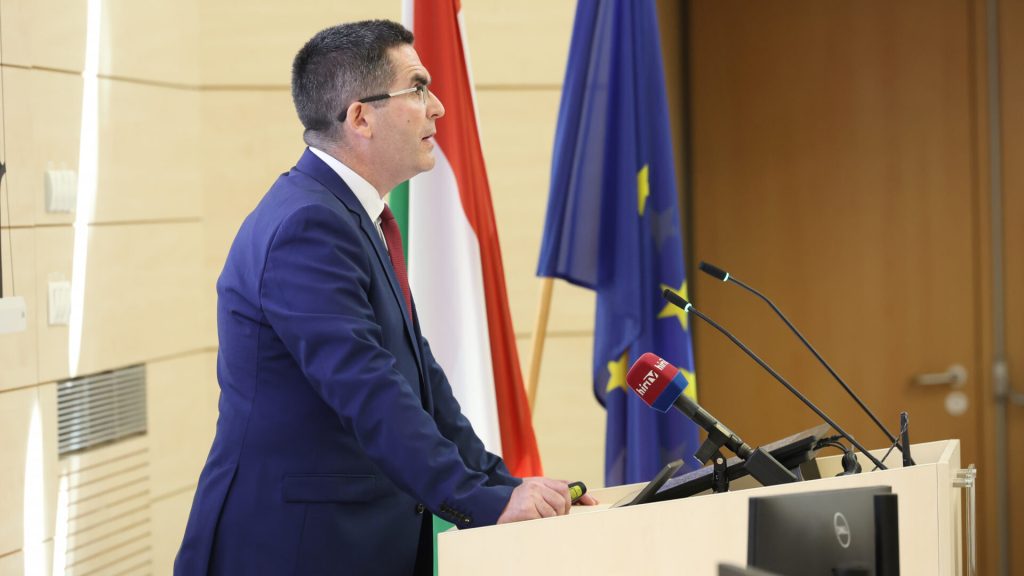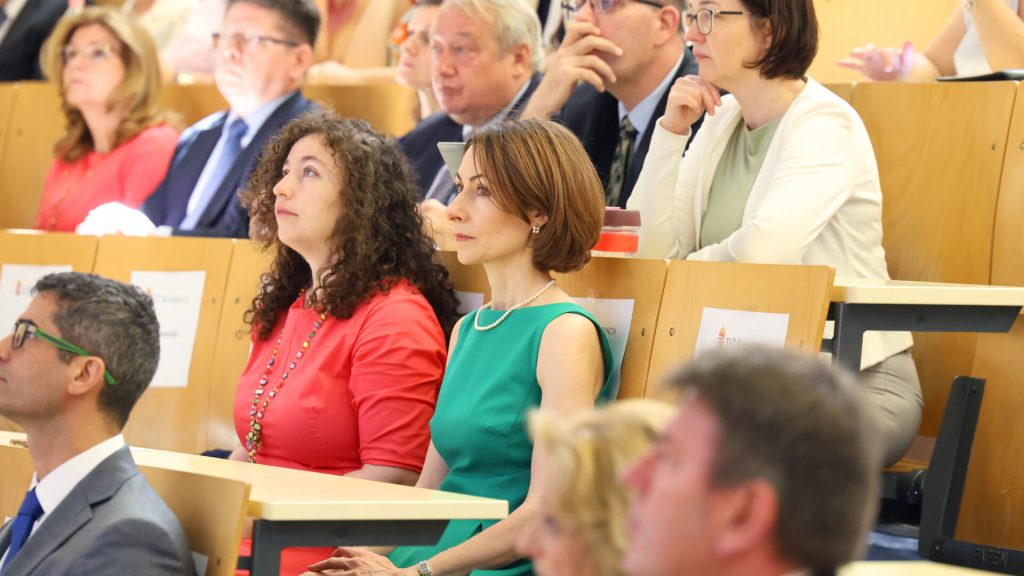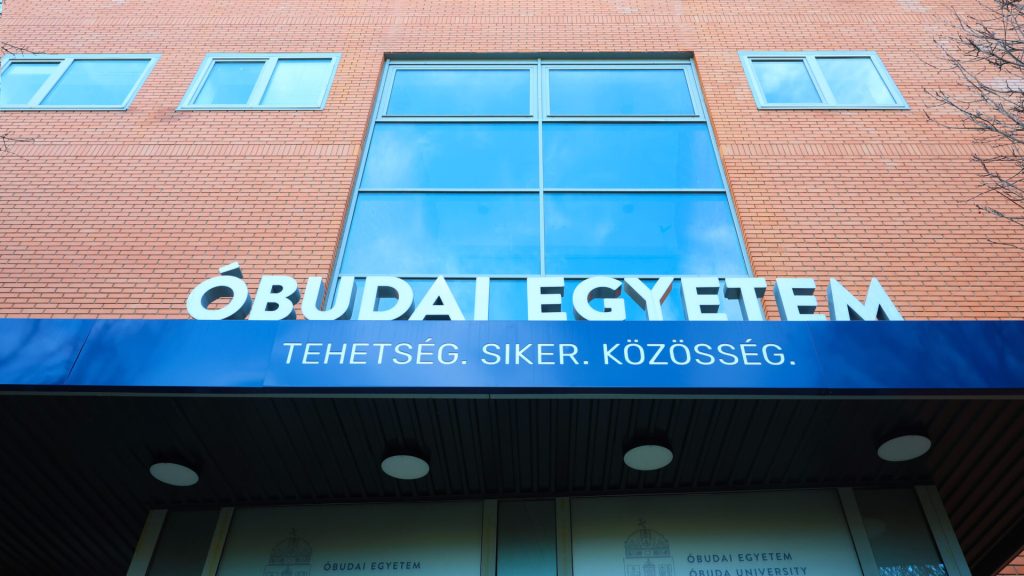The state of Hungarian space research and Hungarian innovations were the focus at the Scientific and Technological (TéT) Conference of the Ministry of Foreign Affairs and Trade, held on Monday, July 1, at Obuda University in Budapest.
Miklós Lengyel, Deputy State Secretary responsible for training, scholarship programs, and scientific diplomacy at the Ministry of Foreign Affairs and Trade, emphasized at the conference that one of the priorities of the current Hungarian EU Presidency, which began on Monday, is to increase the competitiveness of the union, where research, development, and innovation play a crucial role. He added that the tools of scientific diplomacy must be used to support this goal. Their main task is to enhance the reputation of Hungarian science and higher education globally with the help of foreign missions and diplomats, and to introduce Hungarian scientific achievements to the world, highlighted the Deputy State Secretary.

Orsolya Ferencz, Ministerial Commissioner for Space Research at the Ministry of Foreign Affairs and Trade, analyzing the state of Hungarian space research, emphasized the significance of the European Union recently recognizing the importance of strengthening European space competence due to the rapid development of the global space sector. “The history of the 21st century is written in space,” she stated, adding that the European Union aims to prioritize space research in its scientific and innovation policy. She highlighted that during Hungary’s EU Presidency, they aim to initiate negotiations on EU space legislation, conduct an interim evaluation of the EU space program, and strengthen European space competencies. The Ministerial Commissioner recalled that through the HUNOR Hungarian Astronaut Program, Hungary will send an astronaut into space again after forty years, in cooperation with domestic and international partners.

At the conference, Tibor Kapu, researcher-astronaut of the HUNOR Hungarian astronaut program, and Gyula Cserényi, reserve researcher-astronaut of the HUNOR Hungarian astronaut program, also spoke. They explained that the selection process for the astronauts involved the European Space Agency (ESA) and other international partners, and that out of 247 applicants, four astronaut candidates were selected based on a complex set of criteria.

Prof. Dr. Levente Kovács, Rector, drew attention to Obuda University’s innovation ecosystem and decision-making based on an investor-friendly university approach. He also noted that the German Fraunhofer model, which aims to jointly develop science and industry and implement cutting-edge innovation and technology with the involvement of social actors, is a model to follow.
As part of the TéT Conference, the Ministry of Foreign Affairs and Trade’s Smart Hungary 2.0 traveling exhibition was presented. Samu Szemerey, the curator of the exhibition, explained that it introduces 25 Hungarian innovation projects and developments using multimedia tools, focusing on four areas: smart homes, buildings, and cities; smart mobility; smart healthcare, medicine, and sports; and smart agriculture and industry. The selection criterion was to showcase high value-added, knowledge-intensive developments, as well as innovations created due to Hungary’s economic and geopolitical situation, noted the curator, adding that in the second half of 2024, the traveling exhibition will be on display in several European cities, including Ljubljana, Munich, Târgu Mureș, and Bratislava.

According to the Ministry of Foreign Affairs and Trade’s statement, the TéT Conference is an annual event providing a professional forum and meeting opportunity for diplomats involved in scientific diplomacy at Hungarian foreign missions and outstanding figures in the domestic scientific, research, innovation, and higher education sectors. The Monday conference, attended by over 200 participants, aims to familiarize diplomats with research results and innovation projects that could be utilized in foreign markets in the form of concrete products, procedures, know-how, or licenses. The TéT Conference thus facilitates international networking


